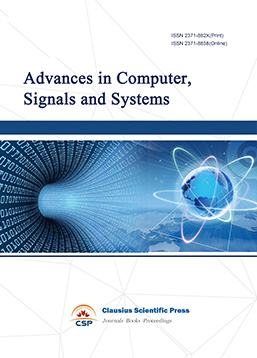The Analysis of Technological Ethical Issues in Generative Artificial Intelligence
DOI: 10.23977/jaip.2024.070220 | Downloads: 88 | Views: 1715
Author(s)
Liu Weijia 1, Li Miaomiao 1
Affiliation(s)
1 Qufu Normal University, Rizhao, Shandong, China
Corresponding Author
Liu WeijiaABSTRACT
At present, generative AI represented by ChatGPT has great potential and development prospects in education ecology, academia, media and public domain, etc. However, it also faces many ethical challenges, such as the weakening of human subjectivity, bias and algorithmic discrimination, privacy and data security issues, and impact on the value system. Actively exploring the good recipe for ethical governance of science and technology will help promote agile governance and make science and technology develop for the better.
KEYWORDS
Ethics of science and technology, Generative AI, bias and algorithmic discriminationCITE THIS PAPER
Liu Weijia, Li Miaomiao, The Analysis of Technological Ethical Issues in Generative Artificial Intelligence. Journal of Artificial Intelligence Practice (2024) Vol. 7: 155-160. DOI: http://dx.doi.org/10.23977/jaip.2024.070220.
REFERENCES
[1] Huang Shijin. "Help" and "Replacement": The Dual Effects of Generative AI on Academic Research[J/OL]. Journal of Shanghai Normal University (Philosophy and Social Science Edition), 2024,(02):65-74[2024-04-16].
[2] Zheng Quan. Knowledge production and dissemination paradigm change and response of generative artificial intelligence[J]. Natural dialectics research, 2024, 40(03):74-82.
[3] Xiaheng Zhang. ChatGPT-like artificial intelligence technology embedded in digital government governance: value, risk and its prevention and control[J]. E-Government, 2023,(04):45-56.
[4] Zou Kailiang, Liu Zubing.The Ethical Risks of ChatGPT and China's Institutional Arrangements for Response[J]. Journal of Hainan University (Humanities and Social Sciences Edition), 2023, 41(04):74-84.
[5] HU Bing, ZHONG Siyue. Implications of the Dutch Prejudicial Technological Ethics Thought for AIGC Governance [J]. Young Journalist, 2024(02):48-54.
[6] Zhang Haopeng, Xia Baohua. How Artificial Moral Intelligence is Feasible - Based on an Examination of Value Sensitive Design[J]. Natural dialectics research, 2021,37(04):37-42.
| Downloads: | 16908 |
|---|---|
| Visits: | 609258 |
Sponsors, Associates, and Links
-
Power Systems Computation

-
Internet of Things (IoT) and Engineering Applications

-
Computing, Performance and Communication Systems

-
Advances in Computer, Signals and Systems

-
Journal of Network Computing and Applications

-
Journal of Web Systems and Applications

-
Journal of Electrotechnology, Electrical Engineering and Management

-
Journal of Wireless Sensors and Sensor Networks

-
Journal of Image Processing Theory and Applications

-
Mobile Computing and Networking

-
Vehicle Power and Propulsion

-
Frontiers in Computer Vision and Pattern Recognition

-
Knowledge Discovery and Data Mining Letters

-
Big Data Analysis and Cloud Computing

-
Electrical Insulation and Dielectrics

-
Crypto and Information Security

-
Journal of Neural Information Processing

-
Collaborative and Social Computing

-
International Journal of Network and Communication Technology

-
File and Storage Technologies

-
Frontiers in Genetic and Evolutionary Computation

-
Optical Network Design and Modeling

-
Journal of Virtual Reality and Artificial Intelligence

-
Natural Language Processing and Speech Recognition

-
Journal of High-Voltage

-
Programming Languages and Operating Systems

-
Visual Communications and Image Processing

-
Journal of Systems Analysis and Integration

-
Knowledge Representation and Automated Reasoning

-
Review of Information Display Techniques

-
Data and Knowledge Engineering

-
Journal of Database Systems

-
Journal of Cluster and Grid Computing

-
Cloud and Service-Oriented Computing

-
Journal of Networking, Architecture and Storage

-
Journal of Software Engineering and Metrics

-
Visualization Techniques

-
Journal of Parallel and Distributed Processing

-
Journal of Modeling, Analysis and Simulation

-
Journal of Privacy, Trust and Security

-
Journal of Cognitive Informatics and Cognitive Computing

-
Lecture Notes on Wireless Networks and Communications

-
International Journal of Computer and Communications Security

-
Journal of Multimedia Techniques

-
Automation and Machine Learning

-
Computational Linguistics Letters

-
Journal of Computer Architecture and Design

-
Journal of Ubiquitous and Future Networks


 Download as PDF
Download as PDF